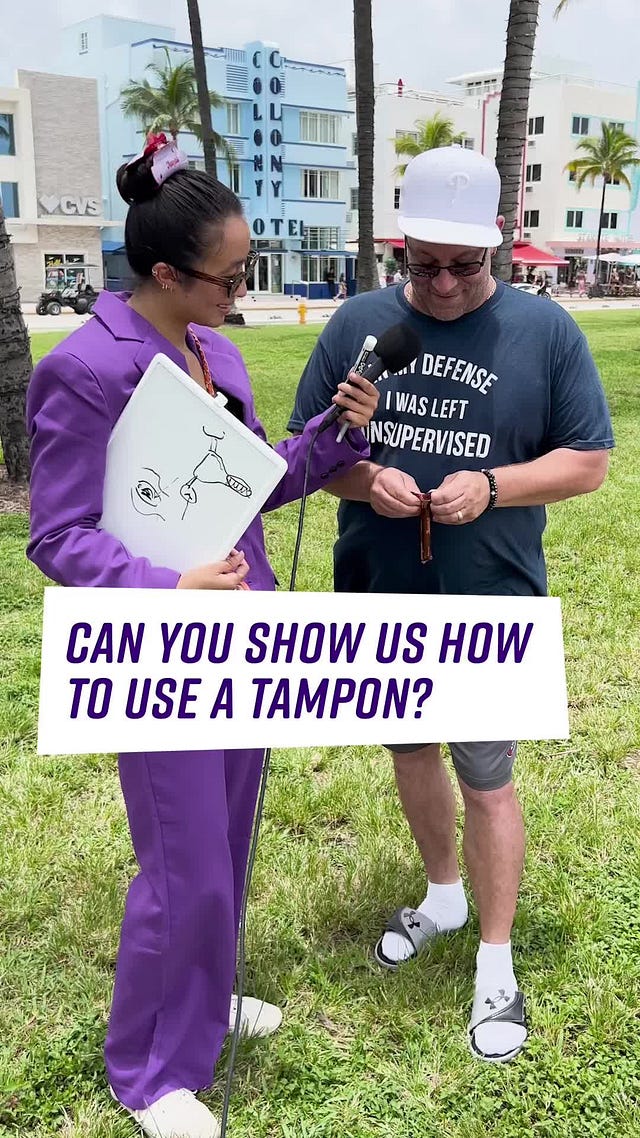It Shouldn't Take A Meme for Us to Care About Sexual Health
How humor became a tool for fighting misinformation in sex education
Funny isn’t an adjective I’d use to describe myself. I know a good joke when I see it, I can be sarcastic, and I love to laugh, but I’m not a comedian by any means.
In a culture that runs on memes and misinformation, this makes my job as a sex educator particularly challenging. I’m direct. I’m not going to bullshit you. I’m going to present you with facts and acknowledge some of the discomfort that might come up for you. Injecting humor into sexual and reproductive health—where misinformation already runs rampant—can set a dangerous precedent.
But humor is sometimes the gateway. Lately, as the United States sinks deeper into chaos, I’ve been coping the best way I know how: memes. My new series, “If I don’t laugh, I’ll cry,” where I share the funniest memes I’ve come across that week, has skyrocketed my Instagram engagement from double to triple digits.
As a sex educator, this is a big deal. I’ve previously written about educators leaving platforms due to censorship. We have to avoid sex and sexual in favor of “spicy” and “seggs.” Who wants spicy seggs? This feels infantilizing and further feeds into the stigmas and stereotypes we’re working to counter. Many people still don’t know the difference between vagina and vulva, so censoring these words feels like it’s doing more harm than good.
The problem for my work, as it specifically relates to sexually transmitted infections (STIs), is that people already start from a foundation of misinformation and lack of education. Most Americans actually start from a place of judgment and stigma.
I started there, too. Even as someone with a background in sexual health, I had pre-existing beliefs and judgments about STIs before my diagnosis. Even your favorite educators aren’t immune, because many of these programs don’t go as deep into these topics.
This lack of knowledge expands to maternal and reproductive health more broadly, too. Just ask any straight woman about men’s knowledge of their bodies. You can go on any social media platform and see street interviews with men struggling to articulate where a tampon goes. Women are encouraged to have kids and families, yet many don’t know the likely and real outcomes of pregnancy and their care.
Many people don’t realize how little they learned about their bodies and relationships from their sex ed classrooms. As of 2024, only 26 states require sex education be medically accurate. Read that again. Further, 42 states require programs to stress or cover abstinence. It’s very possible your sex education was filled with lies, shame, and fear-based tactics to veer you away from sex (which we know doesn’t actually work btw).
The people who don't understand abortion is healthcare, who expect all women to procreate, men who can't find the clit, who spread wild conspiracies about schools and gender—I guarantee you these are the people who either grew up in purity culture or received abstinence-only sex education. Usually it’s a combination of both.
It takes so much for educators to undo the harms that our sex education (or lack thereof) left us with. We’re not just going up against science or fact, we’re battling long held systemic beliefs and injustices.
Many of these beliefs are not rooted in fact, but in feeling. Emotions that override logic and make productive conversations difficult. That's why memes, as simple as they seem, can become an unexpected gateway to traditional education efforts.
I don’t want to be an educator who solely focuses on memes or becomes a meme account. But those very memes, by sheer reach alone, can be the gateway drug to someone opening up to the more direct conversations and content I create.
It shouldn’t take a meme for someone to care, or to consider another’s perspective. But in that meme, I become more than an educator. I become a symbol of laughter, happiness, and joy. I become tied to a feeling. If meeting people where they are means using memes to open the door, I’m more than willing to step inside.









We are sharing a theme today! Here's another way to use humor as a sex education tool: https://www.teenhealthtoday.com/p/a-ballsy-hilarious-push-for-better